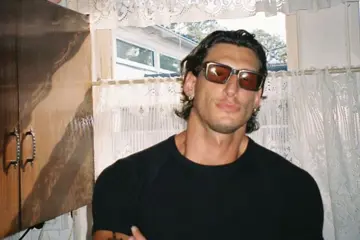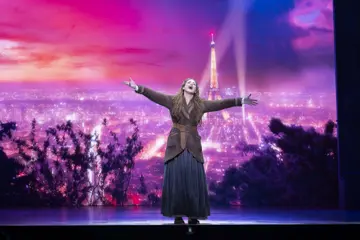When filmmaker Kim Mordaunt and producer Sylvia Wilczynski were in Laos making Bomb Harvest – a profile of an Australian bomb-disposal specialist working in the most bombed country on the planet – they found themselves drawn not just to their subject, Laith Stevens, nor the sordid history of the American “secret war” waged just across the border from Vietnam. Instead, they were most fascinated with the local children they found working as magpies, picking out pieces of scrap metal from the wreckage of ancient ordinance.
“We thought, God, we've gotta work again with these kids,” recalls Mordaunt. “And, next time, instead of doing it from an Anglo perspective for ABC TV, do it from the Lao perspective.”
So, the pair wrote The Rocket, the story of a displaced family forced to carry the burden of a long-ago, half-forgotten war. Both Morduant and Wilczynski lost a parent at a young age; and so they made their character a young boy, so as to explore “the guilt you feel, the mentors that you search for, the chaos that you end up in” as a child dealing with loss.
Even though the filmmakers already had connections with locals – and, in associate producer Pauline Phoumindr, an Laotian-Australian to help bridge the cultural gap – their first steps were still tentative; understandable given Laos doesn't have a film industry. “We learnt very early on that people were going to be very suspicious of us,” says Mordaunt. “This is a country bombed more than any other place on the planet, so you can imagine that people who lived through that, who thought they were literally seeing hell, that they're not about to be trusting of any Westerners who come into town with a camera.”
At first working with rural communities, they had to meet a succession of village chiefs, chiefs of neighbouring villages, district chiefs, country government officials – wanting everything to be official. “We never did the guerrilla approach, I don't think it works in Laos,” says Mordaunt. “You need that government minder. At first I thought a government minder would just limit what we could do, but it proved the opposite: they can get you access to places, and they can help you earn the trust of the locals, because they see this is an official thing, and they're not going to get in trouble for being a part of it.”
Don't miss a beat with our FREE daily newsletter
Working with a cast of non-professional, rural-dwelling, non-English-speaking locals was, of course, a challenge. But Mordaunt, raised by a Mauritian-Indian mother, has spent his whole life – from childhood through his professional work – in migrant community. “So, in a funny sort of way, not being able to speak the language didn't actually bother me at all,” Mordaunt offers. “You're looking for truth in their eyes, in their body language, more than in their actual words.”















